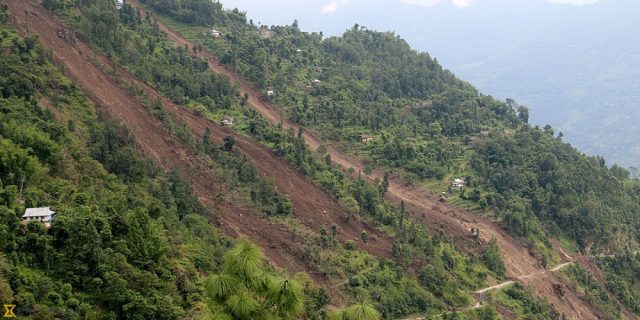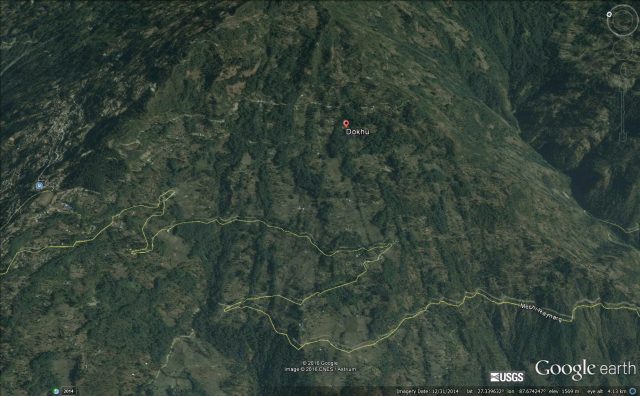4 September 2016
Taplejung: another burst of fatal landslides in Nepal
Posted by Dave Petley
Taplejung: another burst of fatal landslides in Nepal
The last month or so in Nepal has been marked by a lower level of landslide activity than was the case at the start of the monsoon season. However, not unusually, heavy rainfall at this later stage has triggered a new burst of landslides in Nepal, with the district of Talejung in the east of the country being particularly badly affected it seems. The Kathmandu Post reports seven deaths in the last 48 hours, including three deaths in a single landslide in Taplejung Municipality, a further death in another part of the same area, two deaths in a landslide in Kulung village in Bhojpur and one in Devisthan in Myagdi district. Review Nepal reports a further four deaths in Keware in Syangja district early this morning. At the end of last week, Republica reported that a child was killed in a landslide at Gajuri in Dhading district, and on Wednesday night seven people were killed in a landslide at Chyotchyot, which lies in Lamabagar Village Development Committee in Dolakha district.
Thus, in the last five days I believe there have been 19 landslide deaths in Nepal.
The Kathmandu Post has an article with images of some of the landslides in the Taplejung area. This includes this photograph, taken by Ananda Gautam, shows a series of very mobile and surprisingly large debris slides on steep slopes:

Landslides in Taplejung, via the Kathmandu Post and Ananda Gautam
.
The article suggests that this is the area calledDokhu in Taplejung, which is identified in Google Earth as being this region:

Google Earth image of the Dohku area of Taplejung district
.
It would of course be very interesting to know what is at the head of these landslides higher up the slope. Often such failures start with a comparatively small landslide that then entrains large amounts of soils and regolith. Experience suggests that these small landslides are often associated with road building, poor drainage and / or the emplacement of fill.
Previous article of relevance to this post:-
- Landslides in Nepal from the 2016 monsoon
- Monsoon 2016: Nepal reels under the effects of multiple landslides
- Nepal landslides: over 30 killed yesterday in Kaski and Myagdi


 Dave Petley is the Vice-Chancellor of the University of Hull in the United Kingdom. His blog provides commentary and analysis of landslide events occurring worldwide, including the landslides themselves, latest research, and conferences and meetings.
Dave Petley is the Vice-Chancellor of the University of Hull in the United Kingdom. His blog provides commentary and analysis of landslide events occurring worldwide, including the landslides themselves, latest research, and conferences and meetings.